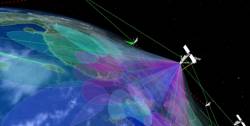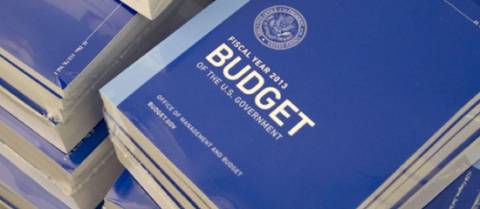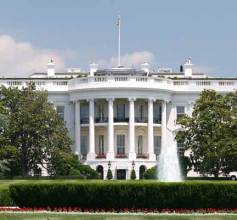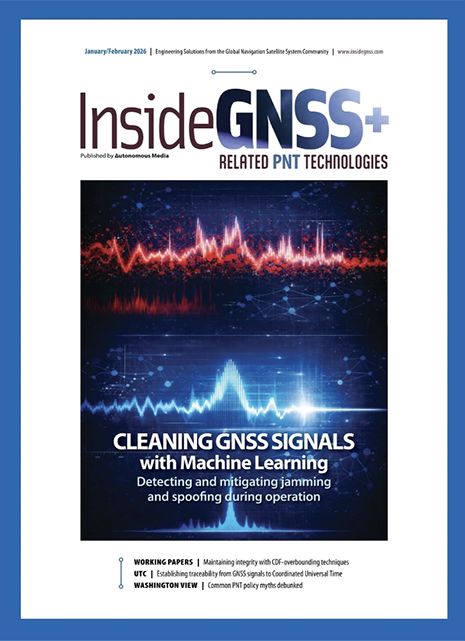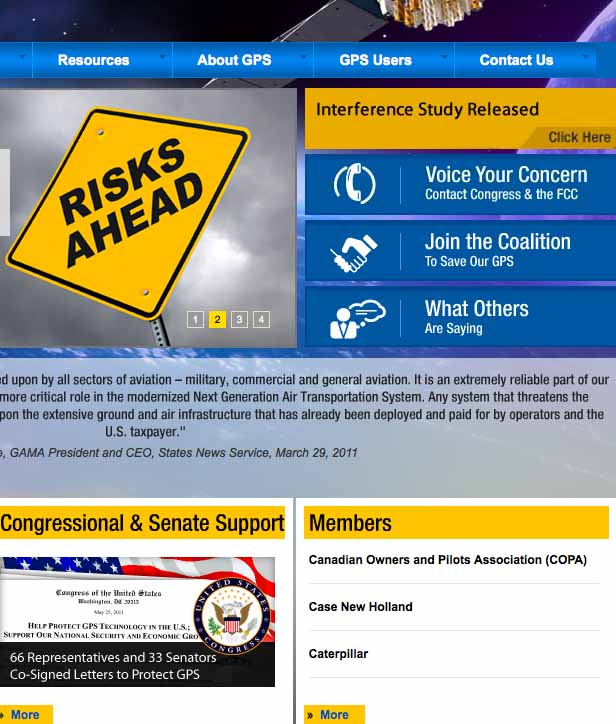
The organization formed to help protect GPS users from a proposed wireless broadband network likely to cause overwhelming interference to GPS devices will not disband. The Coalition to Save Our GPS not only plans to continue to operate but may expand the issues on which it works to incorporate additional topics, such as receiver standards, and perhaps even evolve into a full-fledged trade association.
The organization formed to help protect GPS users from a proposed wireless broadband network likely to cause overwhelming interference to GPS devices will not disband. The Coalition to Save Our GPS not only plans to continue to operate but may expand the issues on which it works to incorporate additional topics, such as receiver standards, and perhaps even evolve into a full-fledged trade association.
“I think this could be a place where you could look at a number of issues,” said a source familiar with the subject who asked not to be identified because the discussions were still ongoing. “So, yes, [regarding] receivers standards, this could be a place where [people] could engage.”
The coalition was launched in early 2011, shortly after the Federal Communications Commission gave conditional approval to the Virginia company LightSquared to develop a 4G LTE broadband network. LightSquared’s system would have incorporated some 30,000 high-powered transmission towers whose signals, tests showed later in the year, would cause debilitating interference to the vast majority of GPS receivers.
The LightSquared question however, was largely decided when the FCC announced on February 14 that it would not allow LightSquared to proceed with its network. Citing a conclusion by the National Telecommunications and Information Administration (NTIA) that there was no practical way to mitigate the potential interference, the FCC proposed to either vacate LightSquared’s conditional waiver or suspend indefinitely its authority to build the towers — also called ancillary terrestrial components. A final decision is still pending.
The LightSquared issue is not formally resolved,” pointed out Tony Russo, director of he National Coordination Office for Space-Based Positioning, Navigation and Timing. “It is still an open matter with the FCC.”
With LightSquared controversy presumably winding down, however, the long-term future of the coalition was increasingly up in the air. The members have now elected to continue with their efforts, both to see the LightSquared controversy through to the end and to be prepared to address whatever new issues that arise.
“As you know, no final action has been taken by the FCC; so, the Coalition to Save Our GPS will remain active and engaged as long as the threat to GPS remains,” said coalition spokesman Dale Leibach. “This experience has brought home the fact that Coalition members, who make up a highly diverse GPS community, need to continue to inform policy makers, GPS users, and the general public about the constantly enhanced uses and ever increasing vitality of GPS — a highly innovative, successful and increasingly ubiquitous technology that is critical to the smart infrastructure of tomorrow.”
The coalition could continue to work as an ad hoc coalition or evolve into a sort of trade association, said the source. “Right now I think the need is more understood than exactly what form it would take. It is under discussion by some of the collation members,” this person said.
“I have always felt there was a need for a voice for the users, not just the manufacturers of GPS technology,” said Jason Y. Kim, senior advisor to the National Coordination Office for Space-Based PNT, who said he looked forward to representing their interests within the government. “Having a truly outside group that’s able to provide us with their perspectives on a variety of GPS issues would be really useful.”
The group has continued its outreach to lawmakers, meeting with a number of members of Congress over the last month to bring them up-to-date, said the source. The group also met June 7 with officials from the FCC to urge them to finalize its LigthSquared decision and not wait for the resolution of other issues like the firm’s proposal to swap its frequencies for others less likely to interfere with GPS.
One of the near-term tasks of a newly-empowered group likely would be to continue to educate government officials and the public about what GPS can do, how critical it is, and how the system and its applications to industries like agriculture are evolving.

